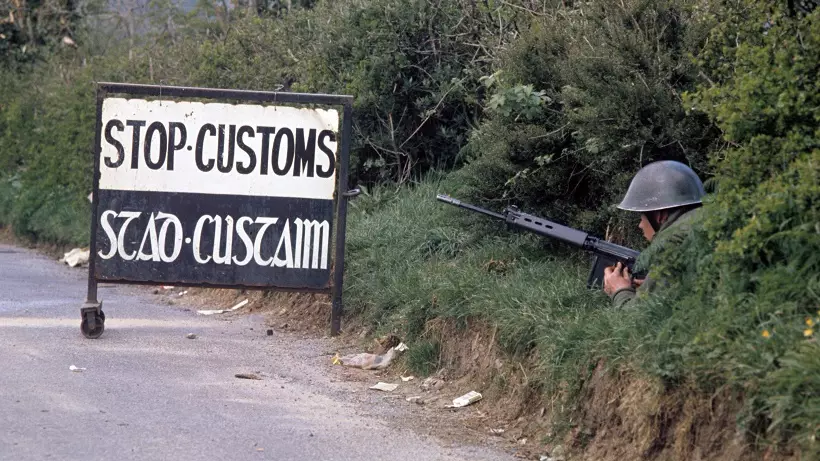
It's been more than 19 years since the Good Friday Agreement was signed, following two referendums held on the island.
It addressed the issues of sovereignty, civil and cultural rights, the decommissioning of weapons as well as justice and policing.
But most importantly, it brought an end to the Troubles, the ethno-nationalist conflict which killed 3,532 people and injured nearly 50,000. It was a battle that lasted for three decades and was fought between nationalists, who mainly identified as Catholic, and unionists, who described themselves as British or Protestant.
Advert
While overt attacks have stopped, the animosity between the two sides persists to this day in some parts of both countries.
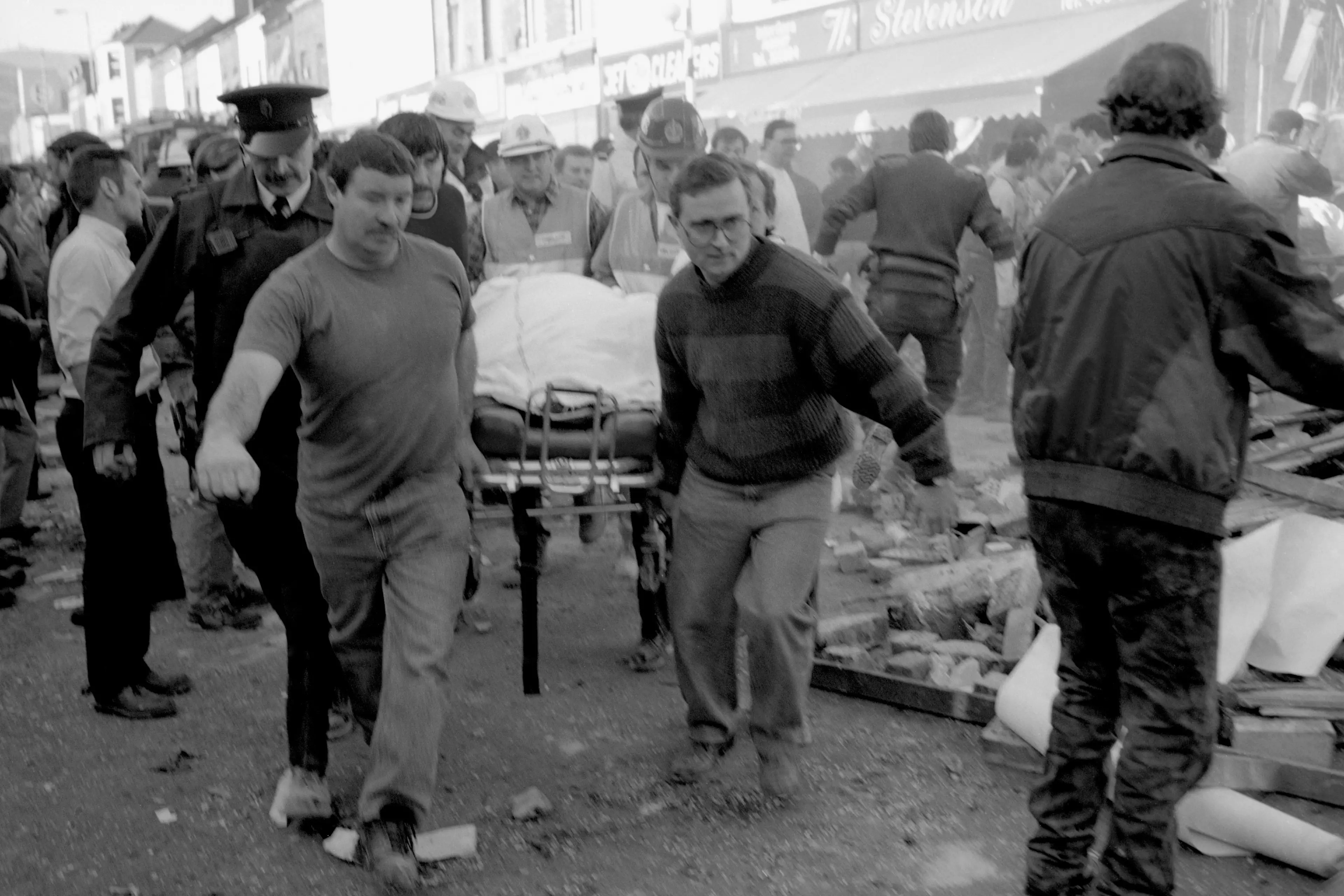
Credit: PA
The Good Friday agreement, along with EU membership arrangements, removed the necessity for watchtowers, vehicle searches and a military presence along the border. But that could be about to change because of Brexit.
Because of Britain's decision to leave the European Union, people in charge of negotiating the split have to address the issue of what to do about the border; with custom controls and tariffs described by some as inevitable. These arrangements are seen between France and Switzerland as well as Norway and Sweden.
Advert
But what effect would a border like that have on citizens either side?
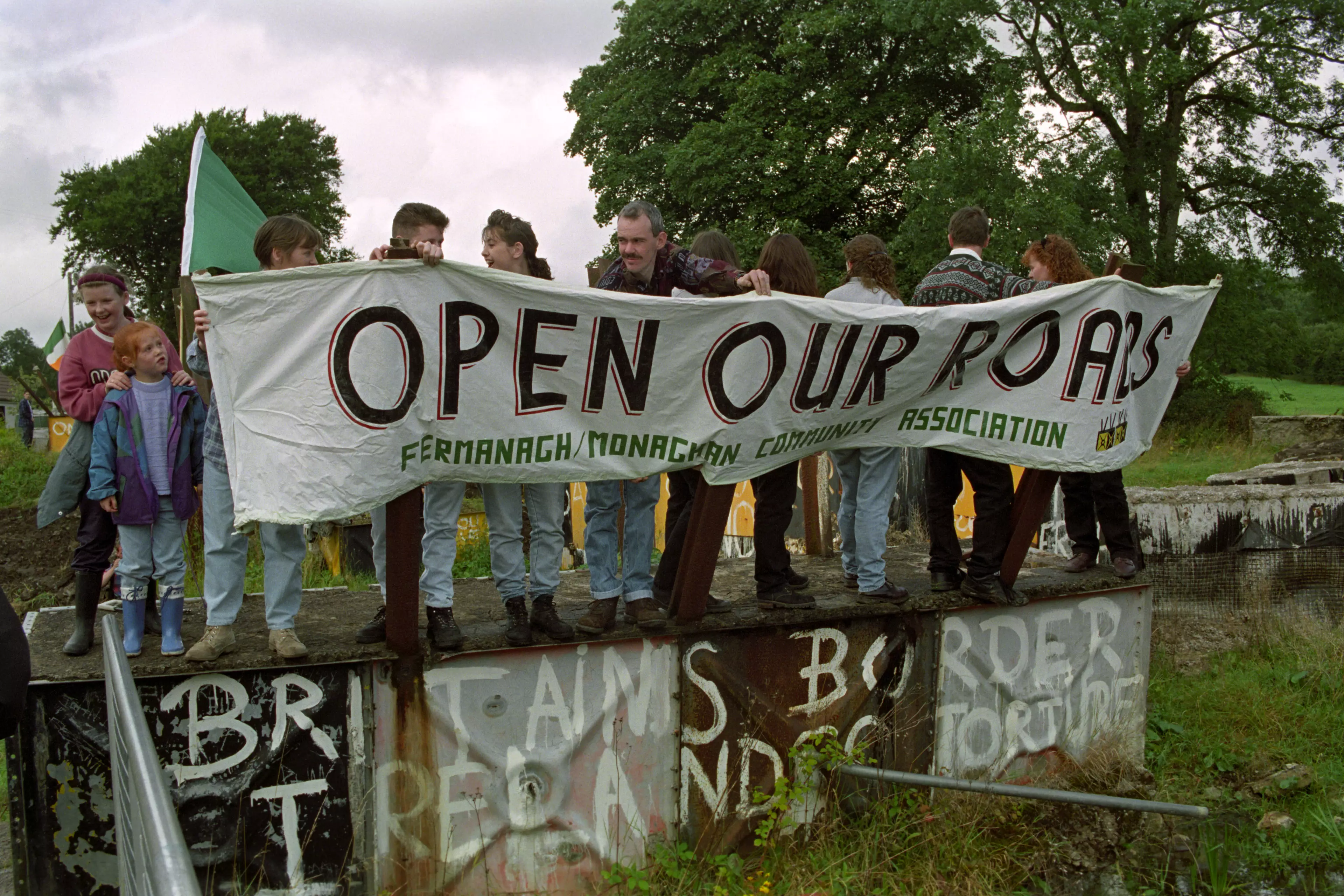
Members of the Fermanagh/Monaghan Community Association hold up a banner asking for the road links between the Republic and Northern Ireland to be re-opened, 1994. Credit: PA
Conleth lives in Armagh City, Northern Ireland, which is 10 miles from the border. He says relations between Catholics and Protestants have improved in Armagh, at least among his generation.
Advert
Conleth told LADbible: "Younger generations are oblivious to what has gone before them and they are growing up and educated in more and more integrated schools."
Despite his self-described laid back attitude towards life, he doesn't deny that a hard boundary would create issues.
Conleth added: "I play rugby in a league that sees games played in Cork, Limerick, Dublin and adding a border would mean additional pains of organising passage. Would we have to declare our meat sandwiches or our cartons of milk on the way down?
"Thankfully the days of bullets are behind us, and the populace want it to stay that way. What I fear could happen is a border could be used as propaganda which could drive the wedge between Catholics and Protestants a little deeper, which many have worked at to remove."
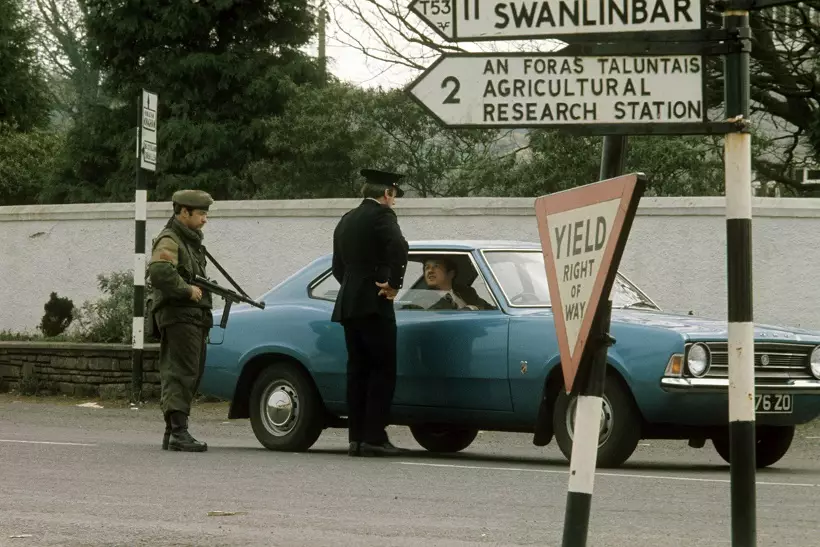
Police and military check cars at a border post in Swanlinbar in the Irish Republic, just south of the Ulster border in 1974. Credit: PA
The border was first set up in 1921 following the Irish War of Independence. Customs controls were brought in three years later with a heavy military presence which remained pretty consistent for the next 70 years. It wasn't until about 2005 until all the remaining controls were removed.
There are 177,000 lorries, 208,000 vans and 1.85 million cars which cross that border every month. On top of that, about 30,000 people cross the border every day because they don't live and work on the same side.
Katie grew up near the border in Donegal County, Republic of Ireland. Her hometown is only 35 miles from Londonderry, which is considered by many as the birthplace of the Troubles.
Advert
It was also the town involved in the Bloody Sunday incident of 1972. She told LADbible that a hard border would be a massive step back for both countries.
She said: "I remember as a child going over the border from Letterkenny and Derry with my parents and the intimidation and tension caused by the presence of soldiers patrolling the check points and how frightening it was.
"A hard border would reintroduce that sense of divide again between the north and south and give us a feeling that we are not welcome to visit our neighbours as we currently do and vice versa. Overall it would just detract from the huge amount of progress that has been made in the peace process in the last two decades."
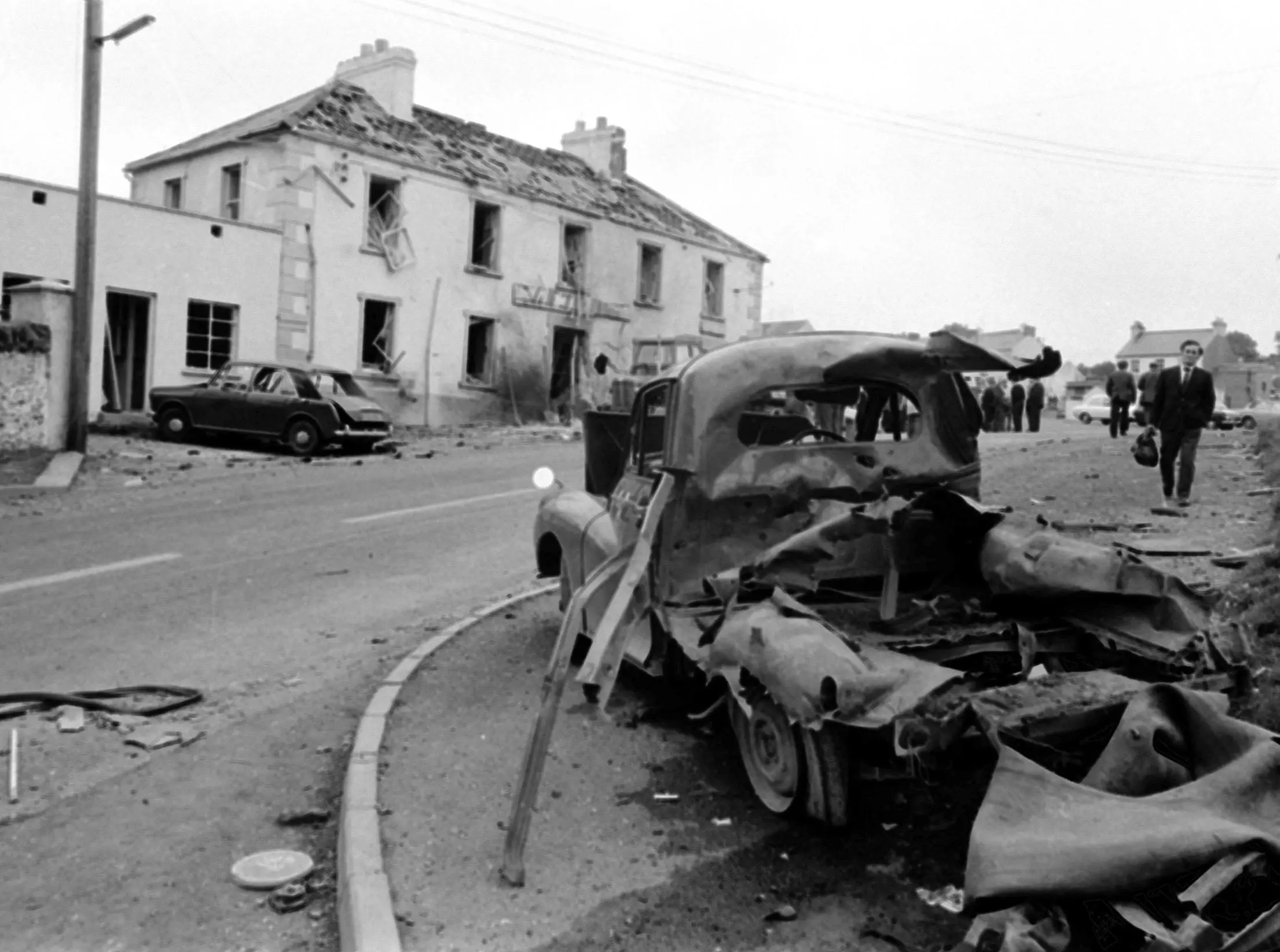
Wreckage is seen outside the Beavpont Arms, Claudy, Northern Ireland, 1972. Credit: PA
She, like Conleth, has grown up in a generation which didn't see much sectarian abuse. Katie says she's lucky that people her age are more open-minded and accepting of different beliefs and cultures.
Advert
Katie said: "I think the north-south divide is nearing the point of becoming a thing of the past. A hard border would definitely be a step in the wrong direction for both countries and could undo a lot of hard work on both parties."
Since the Brexit vote last year, the UK and Irish governments, along with the EU, have said they don't want a return to a hard border and maintain the Common Travel Area. The European Union has a fairly strict view on border controls, but has said it will look into solutions to the threats posed to Ireland's trading links.
But until then, locals and businesses will have to wait in anticipation for what Brexit will bring.
Featured Image Credit: PATopics: Ireland, Northern Ireland, brexit